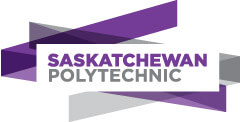About Environmental Engineering Technology Diploma in Saskatchewan Polytechnic
Program Overview
Environmental engineering technologists are on the front lines of environmental protection. You apply science, ecology and engineering to minimize the adverse impacts of human activity on the natural world. You will develop the skills to apply engineering and technology solutions to real world environmental issues.
At Saskatchewan Polytechnic, you’ll learn the applied science behind environmental protection. When you graduate, you’ll have the skills to work in pollution monitoring, environmental audits, environmental management, site assessment and remediation, project management and waste management.
The Environmental Engineering Technology program is a 32-month diploma offered full time at Saskatchewan Polytechnic Moose Jaw campus. You will take five academic semesters and participate in three Co-operative Education work terms (two consecutive terms after first year, and one term in the summer of second year).
The well-rounded curriculum includes:
- environmental impact evaluation and mitigation
- environmental monitoring and control, and data collection and analysis
- environmental site assessment and remediation
- ecology, aquatic chemistry, hydrology and hydrogeology
- atmospheric quality and monitoring
- soil analysis and classification
- solid and liquid waste management
- surveying and drafting
- computer applications and modeling
- technical report writing
Your learning time is 60 per cent in the classroom and 40 per cent in labs, field camps and activities and projects. You’ll build practical skills that ensure you are job ready on graduation.
The Co-op Work Term Advantage
Co-operative work terms are paid, so you’ll earn while you learn. Saskatchewan Polytechnic arranges your interviews; it’s up to you to shine. It’s also a chance to develop important “soft skills” in job interviewing, professional attitude, interpersonal communication and more.
Many of our co-op employers require both a valid Saskatchewan Driver's Licence and a clean Driver's Abstract. For international students, it can take up to 12 months to obtain a Driver's Licence; therefore, it is to your advantage to come with a Driver's Licence from your home country if possible.
Some opportunities require a Criminal Record Check and/or drug and alcohol testing.
Diploma to Degree
Use your diploma to ladder into an applied science degree at Lakeland College in Alberta, an environmental science or environmental management degree at Royal Roads University in British Columbia or a technology degree at Memorial University in Newfoundland.
Career and Salary Information
Your Career
Jobs in environmental engineering technology can involve environmental monitoring and assessment, pollution control, site remediation and reclamation, environmental audits and impact assessments, construction and design, research, technical sales and support for waste management. You could work in an office or a field setting, as part of a team or independently. Potential employers include engineering firms, environmental consultants, utilities, municipalities, government agencies and non-governmental organizations.
Academic qualification equivalents:
- Grade 12 with a minimum 60% in each of the following subjects: English Language Arts A30, English Language Arts B30, Chemistry 30 and Pre-Calculus 30
English language requirements (one of the below):
- IELTS : Overall minimum score of Band 6.5 with a minimum score of 5.0 in each component.
- TOEFL : An overall minimum score of 81 on the Internet-based Test of English
- PTE : A minimum score of 63 with minimum component scores of 50.
Saskatchewan Polytechnic Highlights
| Type |
Public |
| Campus Setting |
Urban |
| Application mode |
Online and Paper mode available |
| Graduation rate |
62% |
| Acceptance rate |
96% |
| Number of Students |
16,008 |
| Overall cost of living |
14,762 CAD |
| Academic calendar |
Semester based |
| % of International students |
6% |
| Number of campuses |
4 |
| Medium of instructions |
English |
| Undergraduate Tuition fee |
14,044 CAD |
| Postgraduate Tuition fee |
16,426 CAD |
| Cost of living |
694 -1147 CAD per month |
Saskatchewan Polytechnic First-Year Tuition Fees And Living Expenses For International Students
Over the course of one academic year, the following graph displays tuition and living expense estimates in Canadian currency for one full-time international undergraduate student. Please bear in mind that these are only estimates; actual pricing will vary depending on your needs and preferences. Other factors to consider include currency changes, visa and study authorization fees, and vacations back home.
- For international students, the overall fees will range from:-
| Particulars |
Amount |
| Administrative fees |
50.00 to 150.00 CAD |
| Application fees |
150 CAD |
| Student association fee |
95.00 to 445.00 CAD |
| Non-refundable fee at the start) |
1,000 CAD |
| Tuition fee range |
6,195 to 18,089 CAD |
| Laboratory fee |
100.00 to 409.00 CAD with no fees for
some courses which do not have a lab service. |
| Books and Supplies |
200 to 3,725 CAD |
| Technology fee |
50 to 146 CAD |
- For a student of Saskatchewan Polytechnic the required financials (Cost of Attendance) can be:-
| Description of Financials |
Amount in CAD |
| Average cost of tuition |
11245.77 CAD |
| Cost of living |
10799.39 CAD |
| Application fee |
150 CAD |
| Estimated total (per year) |
22,195.16 CAD |

